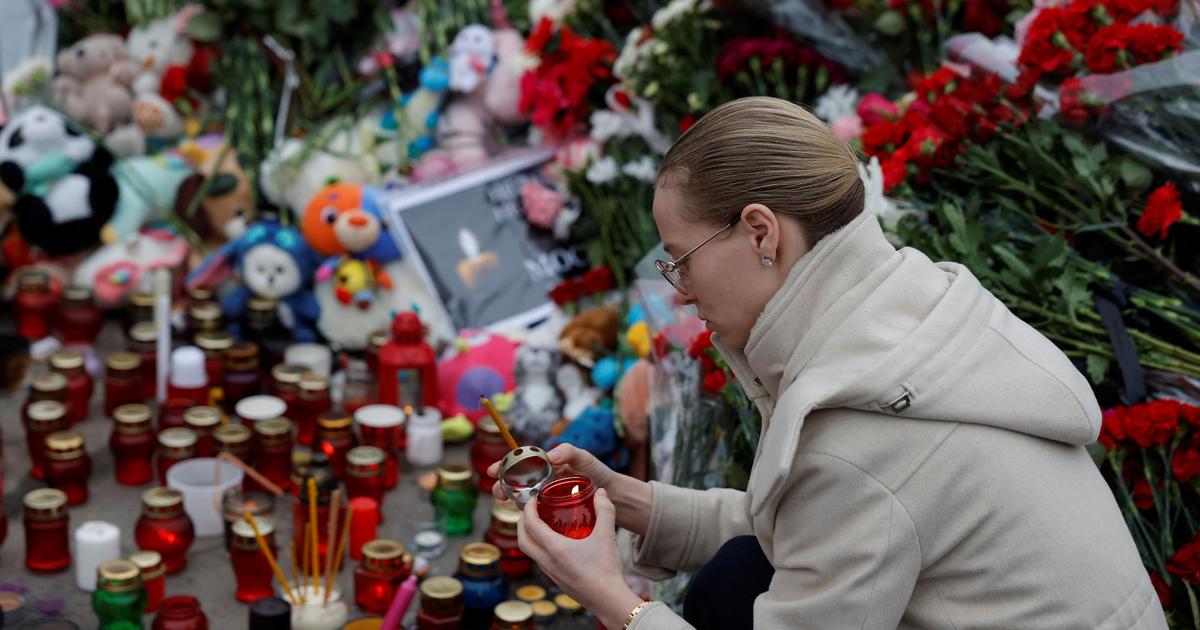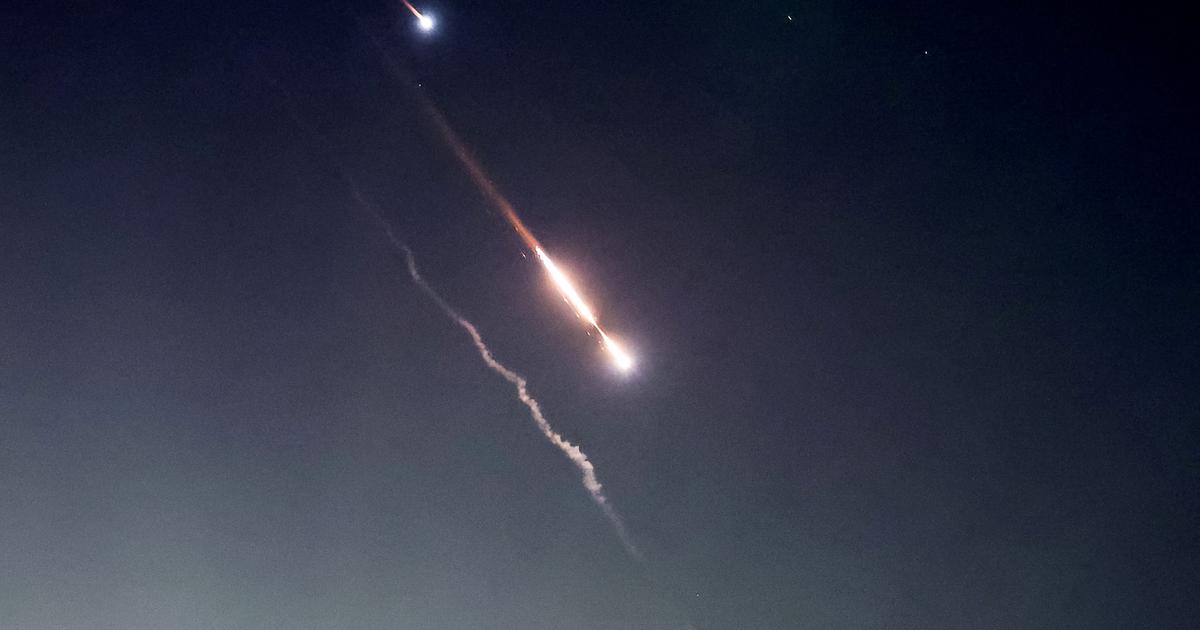Enlarge image
Private yachts in the port of Monaco
Photo: Sebastian Nogier/EPA
The war between Russia and Ukraine has been going on for a month now.
During this time, the United States and the European Union imposed unprecedented sanctions on Russia, its officials, and businessmen.
Their aim is to reason with the Russian elite and people to rebel against Vladimir Putin.
But the sanctions and the looming collapse of the Russian economy have sent the elite into a state of shock.
Most Russian oligarchs have never spoken out against the war—yet they are in shock.
"There's nothing you can do, you have to wait until the smoke clears," a member of the Forbes list of the 200 richest Russians tells me.
He believes that like many of his comrades in the same fate, he is caught between two chairs: on the one hand, he can no longer live in the West because of the sanctions, on the other hand, returning to Russia is almost impossible.
The businessmen who lived in Europe are seen as traitors in Moscow and there is no turning back for them.
On one of the first days of the war, a video surfaced on the Internet showing Roman Abramovich in the VIP area of Tel Aviv airport.
The completely grey-haired lost man, number twelve on Russia's Forbes 2021 list, looked nothing like the former Chelsea football club owner.
He was on his way to Moscow.
His overseas accounts have now been frozen.
The only money he can freely dispose of is in Russian banks.
It was Abramovich who acted as an intermediary between the Kremlin and Kyiv and who organized the negotiations that began on February 27, the third day of the war.
That's what my Moscow sources tell me.
However, according to them, the Russian power lobby has so far been extremely dissatisfied with these negotiations;
the Ministry of Defense and the FSB are therefore of the opinion that mediation by Abramovich is not required to bring the war to a successful conclusion.
The rich never had real power - and now neither does money
Most of what are commonly referred to as Russian oligarchs are now in Moscow or Tel Aviv – the two places where once-wealthy Russians feel most secure.
However, they are not oligarchs in the sense that they wield political power - and they probably never were.
Big business has no say in Vladimir Putin's decisions, unlike in Russia in the 1990s.
And many of them (like Vladimir Potanin, number two on the Forbes list, or Alisher Usmanov, number six on the Forbes list) have publicly stated that they are ready to give anything they own to the state at any time.
The rich have never had any real power in Putin's Russia, and now they don't even have the money that Putin fed them.
Some of the new emigrants in Israel jokingly call the former oligarchs “new beggars”; they tell each other a curiosity: Abramovich’s former business partner Alexander Mamut, number 65 on the Forbes list, flew to Tel Aviv on a cheap EasyJet flight – because for the rich Russians, traveling with private jets has become almost impossible, their jets are stuck in many places.
Mikhail Fridman, the co-owner of Alfa Bank - number 11 on the Forbes list - has been the most vocal about his plight.
Unlike many of his colleagues, Fridman decided not to travel to Israel - but to remain at his home in London, despite the sanctions Britain had imposed on him.
Now Friedman can't manage his own accounts, he can't even pay for his own house to be cleaned or his chauffeur paid.
"I feel like I'm in prison," he said in an interview with Bloomberg.
It is clear from Friedman's statements that he does not understand why he is being punished: he was born in Lviv, his parents are Ukrainian citizens,
he has conducted extensive business in Ukraine in recent years and has no direct ties to Putin.
In addition, Fridman was the first Russian oligarch to publicly oppose the war, publishing a letter against it.
The owner of another major Russian private bank, Oleg Tinkov - number 32 on the Forbes list - a self-made man who has never had anything to do with the Kremlin, has also been sanctioned.
On the second day of the war, he published an anti-war post on Instagram, writing that he had learned firsthand how fragile human life was (Tinkov had been fighting cancer for two years): »Now in Ukraine innocent people are dying, every day, that is unthinkable and unacceptable.«
The sanctions imposed are not only a blow to big business, but also to Russian civil society.
For example, one of the last surviving independent Russian media companies, Meduza, based in exile in Riga, can no longer receive donations from Russia - because Visa and Mastercard have ceased operations in the country.
Almost all Russian emigrants who left the country because of the war found themselves abroad without money - their cards suddenly stopped working.
Above all, however, the sanctions lists included both the oligarchs who were close to the Kremlin and financed state propaganda, and those who supported civil society or independent media.
Would Putin really start a nuclear war?
The main topic of conversation among many members of the business elite at their dinners, several sources close to me have told me, is the threat of nuclear war.
Everyone is aware that Putin makes his decisions alone, that he does not consult anyone and that nobody can influence him - on the contrary, he tends to make all his decisions unexpectedly.
Everyone remembers the famous story from his childhood that Putin told before he was elected president: in the conversation book "Firsthand".
As a child, he and his friends chased a rat and eventually cornered it too.
But when the rat seemed to have no way out, it reared up and charged at Putin - it had turned the tables and attacked him.
Putin's conclusion was simple: "You can't corner a rat." According to some former oligarchs, Putin himself is now like a cornered animal.
So could he attack other countries, order a nuclear strike?
There is disagreement about this.
Some I've spoken to think that's unlikely because Putin would hardly give an order
which he cannot be 100% sure whether he will actually be followed.
And would the officers and generals really want to commit collective suicide?
Out of concern for their families, could they refuse to obey an order to use nuclear weapons?
A palace coup seems to be what most of the wealthy exiles are hoping for.
Some are sure that even people close to them, including members of the National Security Council such as Defense Minister Sergei Shoigu and Foreign Minister Sergei Lavrov, could not have known in advance that the war would be so all-out.
However, the hopes in the West and among some emigrants that a conspiracy could develop in Putin's inner circle remain a pipe dream for the time being.
In the past month, only two former senior officials have directly or indirectly condemned the war.
Former Deputy Prime Minister Arkady Dvorkovich, once President Medvedev's right-hand man and now head of the World Chess Federation, denounced Putin's policies and moved the next Chess Olympiad from Russia to India.
And Anatoly Chubais, a former deputy prime minister from Boris Yeltsin's era who only held an alibi function in Vladimir Putin's court, resigned from the presidential administration - he was later spotted withdrawing money from an ATM in Istanbul.
However, Chubais and Dvorkovich are not individuals who can be counted among Putin's inner circle or at least considered influential officials.
Both are liberal politicians from the distant past.
In recent years, Putin has always blamed the liberals for all of Russia's problems, and recently, when the war had already begun, he said that getting rid of such "traitors" was an important way of self-cleansing.
There is no doubt that if Chubais and Dvorkovich had stayed in Russia, they would have faced arrest and trial - which the general public would even have welcomed.
Putin's supporters would certainly be happy about trials against oligarchs and other rich people - many of his voters have been waiting for this for a long time.
And now that the war has failed, such show trials may well prove to be a new form of entertainment that Putin's television will bring to its viewers.
This prospect is a reason for many former members of the business elite not to return to Russia - even if some of them have lost access to their money in the West.
Even if they are "new beggars" now.
A hunt for businessmen and liberals in Russia could well be imminent.
And when it does, it won't shake Putin's regime and his popular popularity—it will strengthen them.













